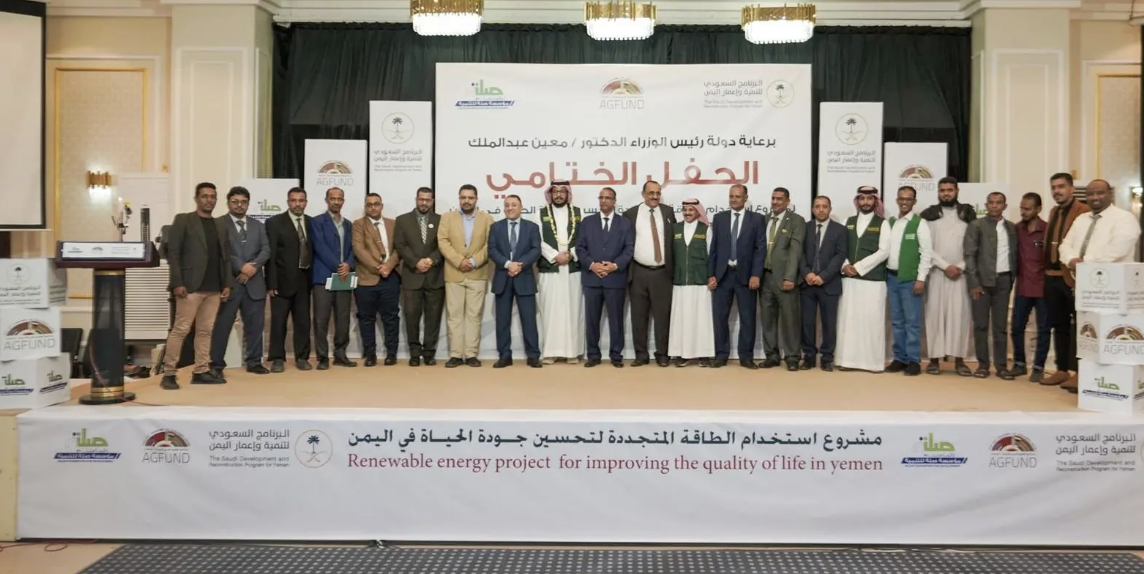Using Renewable Energy to Improve Quality of Life Project Concludes in Yemen with Benefiting over 62,000 Yemenis.

Yemeni Prime Minister Maeen Abdulmalik, in Aden today, attended the closing ceremony of the Using Renewable Energy to Improve Quality of Life Project, which was implemented with a trilateral partnership of the Saudi Development and Reconstruction Program for Yemen (SDRPY), Arab Gulf Program for Development (AGFUND), and Selah Foundation for Development. The project has benefited 62,000 people in five Yemeni governorates of Hadhramaut, Abyan, Lahij, Taiz and Al-Hudaydah.
During the ceremony, Yemeni Minister of Social Affairs and Labor Dr. Mohamad Al-Zaouri praised the generous support of the government of Saudi Arabia, through the SDRPY, AGFUND, and Selah Foundation for Development, for holding vital projects that affect citizens' lives and contribute to improving their standard of life, stressing that this support contributes to achieving sustainable development in the country.
The project significantly contributes to enhancing health and education facilities by efficiently meeting their energy needs in a sustainable manner. It supports the operation of critical medical equipment, creates conducive educational environments for students and teachers, and provides sustainable and accessible energy to targeted families through the installation of home appliance systems. Moreover, this initiative aims to uplift the standard of living in Yemen by improving beneficiaries' daily lives, fostering economic development through increased agricultural production, bolstering food security for Yemenis, reducing carbon emissions to protect the environment, and establishing a clean, sustainable energy source.
The venture involves the rehabilitation of 12 drinking water wells using solar energy systems, provisioning of 35 renewable-energy-based agricultural irrigation systems, powering 20 educational and health facilities, and delivering renewable energy to 133 homes across five Yemeni governorates—Hadhramaut, Abyan, Lahij, Taiz, and Al-Hudaydah.
Project activities encompass comprehensive training courses tailored for field engineers. These courses focus on implementing solar energy systems, aiming to enhance the skills of field technical teams and fortify their technical capacities. The project's substantial contributions to society address numerous water-related challenges, such as interruptions and accessibility issues. The training curriculum covers a wide array of technical and administrative aspects.